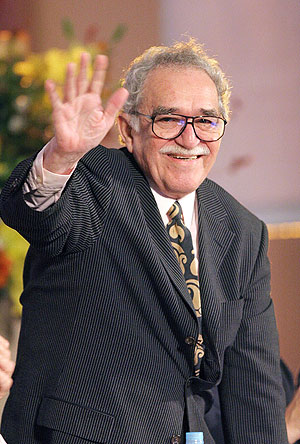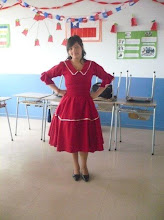Elmer Figueroa Arce, better known as Chayanne, was born in Puerto Rico on the 29th* of June in 1968 and is the third of five siblings. He recently married the Venezuelan Marilisa Maronese, with whom he had a baby who is almost 3 years of age who was named Lorenzo Valentino. Like any other adolescent, Chayanne was delighted to ride motocycles, play tennis, and enjoy a good book; furthermore he is a tireless fighter and self-disciplined, thanks to which he has become an example for all his generation. Chayanne is indebted for his stage name to his mother and a North American TV series. He debuted as a singer at ten years of age, becoming a part of the group "Los Chicos" (the boys), one of the most acclaimed groups originating in the decade of the 80s, causing a true frenzy among the adolescents. Professionally, he has recorded 14 albums/CDs, 5 of these with Los Chicos and 9 others as a solo performer. In 1987 he recorded for the first time with Sony Music International (CBS Records) an album/CD entitled "Chayanne," among whose songs the major hits were "Tu Pirata Soy Yo" (I am Your Pirate), "Este Ritmo se Baila Asii" (This Rhythm is Danced Like This), and "Fuiste un Trozo de Hielo en la Escarcha" (You Were a Chunk of Ice in the Frost). In 1989 he recorded his second album/CD (for Sony) also entitled "Chayanne," among whose songs the major hits were "Fiesta en America" (Party in America), "Violeta" (Violet), "Te Deseo" (I Wish), and "Para Tenerte Otra Vez" (In Order to Have You Again). This album was also recorded in Portugese and resulted in several hits in the Brazilian market. This recording was found worthy of a nomination for the Grammy awards in 1989 under the category "Best Latin Pop Performance." In this same year he signed an exclusive contract worldwide with the Pepsi-Cola company, and recorded the first commercial that came out in Spanish without subtitles primarily in the United States, Latin America, and Europe during the beginning of the Grammy Awards (1989). Then he recorded another commercial for Pepsi, this time in English. Other recordings of his include: "Sangre Latina" (Latin Blood), "Tiempo de Vals" (Waltz Time), "Provocame" (You Turn Me On), "Influencias" (Influences), "Volver a Nacer" (To Be Born Again), and most recently, "Atado a Tu Amor" (Tied to Your Love), which received a nomination for the Grammy Awards in 1998 in the category "Best Latin Pop Performance." Other brillant facets of Chayanne's career have been as an actor. As an actor for television he recorded the soap opera "Pobre Juventad" (Poor Youth) for Televisa/Mexico; meanwhile, when in Puerto Rico and for WAPA TV (today Televicentro of Puerto Rico), he was the star of "Tormento" (Torment) and "Sombras del Pasado" (Shades of the Past). As an actor in films he participated in the film Linda Sara (Pretty Sara), by Jacobo Morales, with the ex-Miss Universe Dayanara Torres; and recently he was the star of the film Dance With Me with Vanessa L. Williams. * On T.V. y Novelas Idolos, Chayanne talks about the day he was born, and he says, "Ella entró al hospital el día 28, pero me tuvo en la madrugada del 29. A pesar de eso, el médico me registró el 28!" (She entered the hospital the 28, but she gave birth on 29 daybreak. In spite of this the doctor registered me the 28!)
Personal Information//*

- Daniiizz
- My Name is Daniela I am 17 years old, my Zodiacal Sign is Cancer the day that born is the 16/07/1992 in Chile in the region of Santiago/ Puente Alto. My Hobbies are listen to music, sing, Draw, dance and write. I Study in the School Padre José Kentenich in Puente Alto. My Boyfriend is called Daniel and I Love him a lot. I live with my parents and I love them too much. I like to be accompanied for my friends, my boyfriend and my cousin.
septiembre 29, 2009
Music!
Elmer Figueroa Arce, better known as Chayanne, was born in Puerto Rico on the 29th* of June in 1968 and is the third of five siblings. He recently married the Venezuelan Marilisa Maronese, with whom he had a baby who is almost 3 years of age who was named Lorenzo Valentino. Like any other adolescent, Chayanne was delighted to ride motocycles, play tennis, and enjoy a good book; furthermore he is a tireless fighter and self-disciplined, thanks to which he has become an example for all his generation. Chayanne is indebted for his stage name to his mother and a North American TV series. He debuted as a singer at ten years of age, becoming a part of the group "Los Chicos" (the boys), one of the most acclaimed groups originating in the decade of the 80s, causing a true frenzy among the adolescents. Professionally, he has recorded 14 albums/CDs, 5 of these with Los Chicos and 9 others as a solo performer. In 1987 he recorded for the first time with Sony Music International (CBS Records) an album/CD entitled "Chayanne," among whose songs the major hits were "Tu Pirata Soy Yo" (I am Your Pirate), "Este Ritmo se Baila Asii" (This Rhythm is Danced Like This), and "Fuiste un Trozo de Hielo en la Escarcha" (You Were a Chunk of Ice in the Frost). In 1989 he recorded his second album/CD (for Sony) also entitled "Chayanne," among whose songs the major hits were "Fiesta en America" (Party in America), "Violeta" (Violet), "Te Deseo" (I Wish), and "Para Tenerte Otra Vez" (In Order to Have You Again). This album was also recorded in Portugese and resulted in several hits in the Brazilian market. This recording was found worthy of a nomination for the Grammy awards in 1989 under the category "Best Latin Pop Performance." In this same year he signed an exclusive contract worldwide with the Pepsi-Cola company, and recorded the first commercial that came out in Spanish without subtitles primarily in the United States, Latin America, and Europe during the beginning of the Grammy Awards (1989). Then he recorded another commercial for Pepsi, this time in English. Other recordings of his include: "Sangre Latina" (Latin Blood), "Tiempo de Vals" (Waltz Time), "Provocame" (You Turn Me On), "Influencias" (Influences), "Volver a Nacer" (To Be Born Again), and most recently, "Atado a Tu Amor" (Tied to Your Love), which received a nomination for the Grammy Awards in 1998 in the category "Best Latin Pop Performance." Other brillant facets of Chayanne's career have been as an actor. As an actor for television he recorded the soap opera "Pobre Juventad" (Poor Youth) for Televisa/Mexico; meanwhile, when in Puerto Rico and for WAPA TV (today Televicentro of Puerto Rico), he was the star of "Tormento" (Torment) and "Sombras del Pasado" (Shades of the Past). As an actor in films he participated in the film Linda Sara (Pretty Sara), by Jacobo Morales, with the ex-Miss Universe Dayanara Torres; and recently he was the star of the film Dance With Me with Vanessa L. Williams. * On T.V. y Novelas Idolos, Chayanne talks about the day he was born, and he says, "Ella entró al hospital el día 28, pero me tuvo en la madrugada del 29. A pesar de eso, el médico me registró el 28!" (She entered the hospital the 28, but she gave birth on 29 daybreak. In spite of this the doctor registered me the 28!)
septiembre 28, 2009
Books!

Description:
On the eve of his ninetieth birthday a bachelor decides to give himself a wild night of love with a virgin. As is his habit–he has purchased hundreds of women–he asks a madam for her assistance. The fourteen-year-old girl who is procured for him is enchanting, but exhausted as she is from caring for siblings and her job sewing buttons, she can do little but sleep. Yet with this sleeping beauty at his side, it is he who awakens to a romance he has never known. Tender, knowing, and slyly comic, Memories of My Melancholy Whores is an exquisite addition to the master’s work.
septiembre 27, 2009
News

Russian president Dmitry Medvedev has said alcoholism is a ‘national disaster’ in his country. He spoke of his shock at how much Russians drank each year. In particular, he said Russian people drank too much vodka, which is the nation’s most popular alcoholic beverage. Mr. Medvedev quoted a recent report that showed the average Russian drank 18 litres of pure alcohol each year. That means around 350 litres of beer or about 45 litres of vodka. That's almost a litre of vodka a week. The president said: “When you convert that into vodka bottles, it is simply mind-boggling.” He said measures aimed at reducing the levels of drinking have not worked. "This is a centuries-old problem and one cannot hope to solve it overnight," Medvedev said.
Doctors in Russia believe alcohol causes around half of all deaths of Russians between the ages of 15 and 54. An equally frightening statistic is that only 40 per cent of Russian school leavers are likely to live to the age of 60. This will have a huge impact on Russia’s economy. The country has one of the highest rates of alcohol-related diseases in the world. Health Minister Tatyana Golikova said: "We are the absolute leader in terms of alcohol consumption." One problem Russia has is bootlegging – making and selling vodka illegally to avoid paying taxes. Quite often the alcohol content in bootleg vodka is much higher than that in commercially produced liquor. Officials say up to 50 per cent of Russia's vodka market is illegal.
septiembre 26, 2009
English
"Irregulars Verbs"
Introduction
Although many verbs in English form their past tense with -ED, some do not. These are called irregular verbs, and they include some of the most basic verbs in English. This page will explain some of the most important patterns in forming the past tense. However, the only way to know how an irregular verb will change in the past tense is to learn all of the important verbs.
The three most important irregular verbs are BE, HAVE, and DO. The simple past forms for BE are different depending on the subject.
| Pronoun | BE | HAVE | DO |
|---|---|---|---|
| I | was | had | did |
| You | were | had | did |
| He / she / it | was | had | did |
| We | were | had | did |
| They | were | had | did |
2. Other irregular verbs
Other irregular verbs fall into three main categories:
| Category | Examples |
|---|---|
| Verbs which don't change | cut - cut hit - hit fit - fit |
| Verbs which change their vowel | get - got sit - sat drink - drank |
| Verbs which change completely | catch - caught bring - brought teach - taught |
| Infinitive | Simple Past | Past Participle | Spanish |
| be | was / were | been | ser |
| become | became | become | convertirse |
begin | began | begun | comenzar |
| bite | bit | bitten | morder |
| blow | blew | blown | soplar |
| break | broke | broken | romper |
| bring | brought | brought | traer |
| build | built | built | construir |
| buy | bought | bought | comprar |
| catch | caught | caught | atrapar |
| choose | chose | chosen | elegir |
| come | came | come | venir |
| cost | cost | cost | costar |
cut | cut | cut | cortar |
| do | did | done | hacer |
| draw | drew | drawn | dibujar |
| dream | dreamt/dreamed | dreamt/dreamed | soñar |
| drink | drank | drunk | beber |
| drive | drove | driven | conducir |
| eat | ate | eaten | comer |
| fall | fell | fallen | caer |
| feel | felt | felt | sentir |
| fight | fought | fought | pelear |
| find | found | found | encontrar |
| fly | flew | flown | volar |
| forget | forgot | forgotten | olvidar |
| forgive | forgave | forgiven | perdonar |
| get | got | got | obtener, alcanzar |
| give | gave | given | dar |
| go | went | gone | ir |
| grow | grew | grown | crecer |
| have | had | had | tener |
| hear | heard | heard | oír |
| hide | hid | hidden | esconderse |
| hit | hit | hit | golpear |
| hurt | hurt | hurt | herir, doler |
| keep | kept | kept | mantener, guardar |
| know | knew | known | saber |
| learn | learnt/learned | learnt/learned | aprender |
| leave | left | left | dejar |
| lend | lent | lent | prestar |
| lie | lay | lain | mentir |
| lose | lost | lost | perder |
| make | made | made | hacer |
| mean | meant | meant | significar |
| meet | met | met | conocer, encontrar |
| pay | paid | paid | pagar |
| put | put | put | poner |
| read | read | read | leer |
| ride | rode | ridden | andar |
| ring | rang | rung | sonar |
| rise | rose | risen | elevar |
| run | ran | run | correr |
| say | said | said | decir |
| see | saw | seen | ver |
| sell | sold | sold | vender |
| send | sent | sent | enviar |
| set | set | set | establecer |
| shoot | shot | shot | disparar |
| show | showed | shown/showed | mostrar |
| shut | shut | shut | cerrar |
| sing | sang | sung | cantar |
| sit | sat | sat | sentarse |
| sleep | slept | slept | dormir |
| speak | spoke | spoken | hablar |
| spend | spent | spent | gastar |
| spill | spilt/spilled | spilt/spilled | derramar |
| stand | stood | stood | levantarse |
| steal | stole | stolen | robar |
| strike | struck | struck | golpear |
| swear | swore | sworn | jurar |
| swim | swam | swum | nadar |
| take | took | taken | tomar |
| teach | taught | taught | enseñar |
| tear | tore | torn | rasgar |
| tell | told | told | decir, contar |
| think | thought | thought | pensar |
| throw | threw | thrown | lanzar |
| wake | woke | woken | despertarse |
| wear | wore | worn | usar |
| write | wrote | written | escribir |
septiembre 25, 2009
English
The Simple Past Tense (with the verb to be)
Similar to the Present simple tense, The simple past is divided in two main parts. The form with the “to be” and with “other verbs”
It is quite simple. We DO NOT use auxiliaries (do, does, don’t and doesn’t) To form the negative we just add the “not” and for questions
we just switch the SUBJECT and the VERB TO BE.In present tense we used: Am / Is / Are
NOW IN PAST TENSE WE USE ONLY 2 CONJUGATIONS! >>> WAS & WERE
He / she / it — was (Positive) Wasn’t (Negative)
I / we / you / They— were (Positive) Weren’t (Negative)
- I/HE/SHE/IT => was
-YOU/ WE/THEY =>were
NO:
- I/HE/SHE/IT => wasn't
-YOU/WE/THEY => weren't
Verb to be with question words:
In this class we will talk about question words and how we can use them with the verb to be in the present tense.
Question words are those words that may go in the beginning of a question. When we use question words we do not use a yes or no answer.
Ejemplo :
What’s your name?
I’m David Taylor. (The answer is a sentence)
With no question word:
Are you Maria?
No, I’m not (The answer is a yes/no because there isn’t a question word)
Question words are used to gather specific information. The following table shows the meaning of the question words in Spanish.
English | Spanish |
| Where | Donde |
| Why | Por que |
| Who | Quien |
| What / (time) | Que / Cual (a que hora) |
| Which | Que / Cual |
| How long | Por cuanto tiempo / para medidas |
| How often | Con que frecuencia |
| Whose | De quien |
| How many/much | Cuantos |
| How old | Edad |
| How | Como |
| How + adjetivo | Descripciones |
| How come | Como asi |
| Question Word | Verb (to be) | Subject | Complement |
| What | is | (your) name? | [no complement] |
| How old | are | you? | [no complement] |
| Where | is | Juan | from? |
| Who | is | (the) present | for? |
Remember:
In questions with the verb to be, only the question words can go in the beginning. Nothing may go in front of the question words in full questions.
Where are you from? (QW goes first)
Typical questions with the above properties:
What is this for? (¿Para que es esto?)
Who are the books for ? (¿Para quien son los libros?)
What is the movie about? (¿De que se trata el libro?)
septiembre 22, 2009
English
In the simple past, there are two ways to distinguish in regulars and irregulars verbs.
Syntax (POSITIVE FORM):
I, you, he, she, it, we, you, they + VERB (PAST FORM) + Complement
Rules:
-Verbs ending in e, add d.
- Consonant + y change y => i + ed.
- Wowel + consonant, double the consonant and add ed.
- y and w, at the end of a word are not consonant sounds. So verbs ending in y or w don't double consonant.
- Linten => Linstened
- Like => Liked
- Study=> Studied
- Play => Played
Examples: NO MATTER WHICH IS THE SUBJECT: ALWAYS wear the same CONJUGATION
1) Maria played soccer last week.
2) Pedro and Juan watched TV yesterday
3) We studied for the test but we all failed.
4) They talked on the phone for two hours last night.
NEGATIVE FORM:
In the negative form we need to use the auxiliary did + not (didn’t). remember that when we use the auxiliary we put the verb in the INFINITIVE form. The auxiliary didn’t is used in the negative form with verbs that are not to be. DO NOT USE DIDN’T WITH WAS OR WERE!!!
| Subject | Auxiliary (did) + not | Infinitive |
| I You She He It We They | Did not (didn’t) | Study Work Play Go Eat Arrive Live |
Positive form | Negative form |
| She studied all night | She didn’t study all night |
Simple Past (QUESTION FORM)
In the question form we need to use the auxiliary “Did” and we have to write the verb in the INFINITIVE form
We can also place the question word before this structure:
QW + DID + Subject+ Verb (Infinitive)
Examples:
- What did you do yesterday?
- Where did Maria go last week?
- What time did Pedro leave the party?
- When did Sarah get married?
- How many bottles of beer did they drink?
Present Simple | Past Simple |
| (-) I don’t study | I didn’t study |
| (-) She doesn’t work | She didn’t work |
| (?) Does she study? | Did she study? |
| (?) Do you like movies? | Did you like the movie? |

















